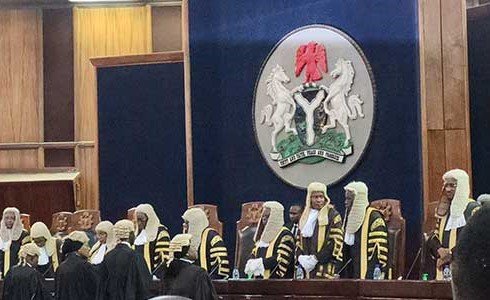The Federal High Court in Abuja has ruled against the idea of a shadow government in Nigeria.
The case involved Prof. Pat Utomi, the 2007 presidential candidate of the African Democratic Congress. He had proposed setting up a shadow government to challenge the actions of the sitting administration.
Justice James Omotosho delivered judgment, saying the Nigerian Constitution remains the supreme law of the land. “Sections 1(1) and 2(1) of the Constitution are binding on all citizens,” he stated.
Nigeria runs a presidential system copied from the United States. In contrast, the shadow government is part of the Westminster system, used in the United Kingdom, Australia, Canada, and other former British colonies. In those systems, opposition leaders form a “government-in-waiting” to scrutinize those in power.
The judge explained that such practices are foreign to Nigeria’s political framework. “The concept of shadow government is alien to our system,” he declared.
What the Court Said
Justice Omotosho noted that while freedom of expression is protected, it is not absolute. “The defendant cannot hide under fundamental rights to create confusion,” he warned. The court ruled that Utomi’s move threatened Nigeria’s security and stability.
The judgment added that no individual is permitted to establish any form of government not recognized by the Constitution. “The attempt to establish a parallel government is unlawful and portends danger,” the court stated.
Other African countries have tried similar methods to make governments more accountable. In Zimbabwe, opposition parties once tried to form parallel structures, while in Sudan, shadow-like groups operated underground.
Often, such moves trigger heavy government crackdowns.
For Nigeria, the case reaffirms that its presidential system is rigid. The Constitution allows dissent, but it leaves little room for experimental governance.
The ruling comes at a time when Nigeria continues to grapple with weak institutions, political instability, mistrust of government, economic difficulties and rising insecurity. So, could Utomi’s idea have been an attempt to build more accountability, or was it truly a backdoor to instability, and how?
Rate, Like 👍, Comment💬, share this article and Follow us on our social media handles. You can also Submit your own story to get featured and earn rewards!








